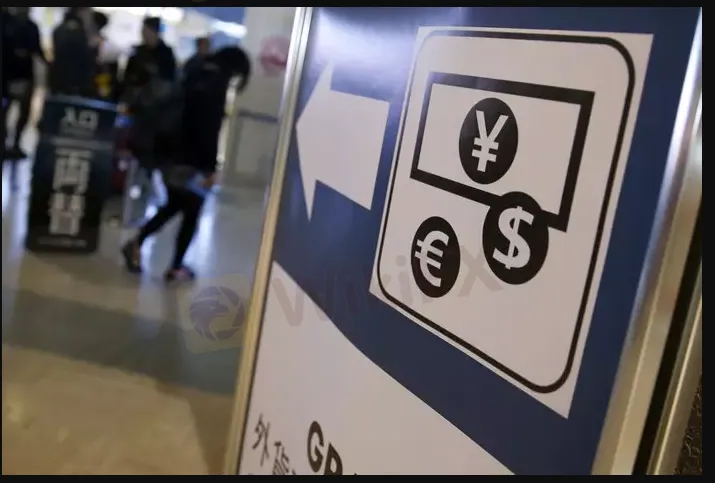简体中文
繁體中文
English
Pусский
日本語
ภาษาไทย
Tiếng Việt
Bahasa Indonesia
Español
हिन्दी
Filippiiniläinen
Français
Deutsch
Português
Türkçe
한국어
العربية
Dollar gains ground after Powell comments
Abstract:The Japanese yen continued its slide on Monday morning, while the aussie and kiwi remained bid, with traders eying a string of public remarks by global central bank policy makers this week, including Fed chair Jay Powell later Monday.

The dollar strengthened against a basket of major currencies on Monday, in the wake of comments from U.S. Federal Reserve Chair Jerome Powell that opened the door for the central bank to take a more aggressive monetary policy path.
The greenback had been fluctuating between slight gains and losses earlier in the day, and weakened slightly after comments from Atlanta Federal Reserve Bank President Raphael Bostic. The policymaker said he sees six rate hikes this year and two for 2023, a more dovish stance than most of his colleagues as he has concerns about the effects of the conflict between Russia and Ukraine on the U.S. economy.
But the dollar gained ground after Powell said the central bank must move “expeditiously” to bring too-high inflation under control, and will, if needed, use bigger-than-usual interest rate hikes to do so.
“He keeps saying the same thing over and over, that we‘ve got to get inflation down and whatever it takes that’s what we‘re going to do. The market unfortunately is hanging on to old norms, that they’ll just do a quarter (of a percentage point) every time,” said Sameer Samana, senior global market strategist at Wells Fargo Investment Institute in St. Louis.
“The Fed is kind of rewriting that playbook – we may have to go every meeting, we may have to do something more than 25 basis points, and we might have to do rate hikes and quantitative tightening at the same time.”
Markets have been volatile over the past month as the situation in Ukraine has escalated, increasing the prices of commodities such as oil and putting upward pressure on already high inflation.
The Fed raised its key interest rate by 25 basis points last week for the first time since 2018 as it attempts to combat rising prices while trying to avoid a policy error which could send the U.S. economy into recession. Investors are now focused on the potential speed and size of future rate hikes.
The dollar index rose 0.123%, with the euro down 0.24% to $1.1022.
Ukraine defied a Russian demand that its forces lay down arms in the besieged port city of Mariupol before dawn on Monday.
While many central banks around the globe have been hiking rates, with the Fed the latest to do so, the Bank of Japan on Friday maintained its massive stimulus program and held rates steady, while warning of increased risks from the Ukraine crisis to a delicate economic recovery.
That disparity has served to weaken the yen, with the Japanese currency trading near six-year lows versus the dollar despite its safe-haven status.
European Central Bank President Christine Lagarde said on Monday that the Fed and ECB will also move out of sync, as the war in Ukraine has very different impacts on their respective economies.
The Japanese yen weakened 0.17% versus the greenback at 119.38 per dollar, after touching 119.46 yen, its lowest level since February 2016.
Sterling was last trading at $1.3168, down 0.06% on the day.
In cryptocurrencies, Bitcoin last fell 1.84% to $40,973.32 while Ethereum last fell 1.33% to $2,908.60.

Disclaimer:
The views in this article only represent the author's personal views, and do not constitute investment advice on this platform. This platform does not guarantee the accuracy, completeness and timeliness of the information in the article, and will not be liable for any loss caused by the use of or reliance on the information in the article.
Read more

Top 10 Trading Indicators Every Forex Trader Should Know
Master the top 10 Forex trading indicators to analyze real-time Forex quotes, trends, and market signals. Learn strategies to boost accuracy and avoid mistakes.

Geopolitical Events: What They Are & Their Impact?
You've heard many times that geopolitical events have a significant impact on the Forex market. But do you know what geopolitical events are and how they affect the FX market? Let us learn about it today.

Why Do You Feel Scared During Trade Execution?
Trade execution is a pivotal moment for traders. It is when analysis turns into action, and potential profits or losses become reality. However, for many traders, this moment is accompanied by fear. Why does this happen, and how can you address it?

WikiEXPO Global Expert Interview: Simone Martin—— Exploring Financial Regulation Change
In the midst of financial innovation and regulation, WikiGlobal, the organizer of WikiEXPO, stays abreast of industry trends and conducts a series of insightful and distinctive interviews on pivotal topics. We are delighted to have the privilege of inviting Simone Martin for an in-depth conversation this time.
WikiFX Broker
Latest News
Geopolitical Events: What They Are & Their Impact?
Top 10 Trading Indicators Every Forex Trader Should Know
Why Do You Feel Scared During Trade Execution?
Currency Calculator


